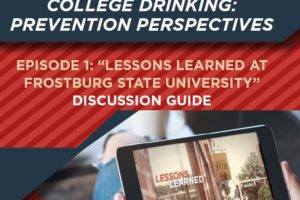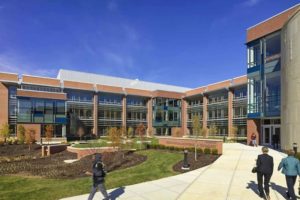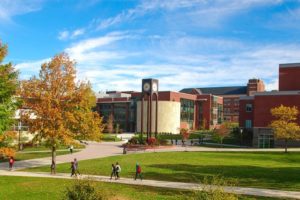Campus Success Stories
The Maryland Collaborative member schools have worked to implement individual and environmental level strategies to create healthier and safer campus environments. Individual level success stories include evidence-based practices focused on educating and screening students and clinically-based interventions. Environmental level success stories focus on evidence-based practices aimed at changing the alcohol use environment on the campus and in the surrounding community. Details on these strategies can be found in the Guide to Best Practices.
College Drinking: Prevention Perspectives – “Lessons Learned at Frostburg State University” Discussion Guide:
This guide highlights steps taken by the Frostburg State University community to reduce underage and high-risk drinking among the student population and discusses how these strategies were implemented.
Frostburg State University Tackles Excessive Drinking-Binge Drinking Rates Plummet
Administrators here at Frostburg State University (FSU) care about students and want them to be healthy. We know there are a lot of acute legal, social, personal, and academic harms related to high-risk drinking.
Success Story: Social Host Ordinance in Baltimore County
In Towson, Maryland, community volunteers worked with one of the largest universities in the state to reduce excessive drinking among college students.
College Drinking: Prevention Perspectives – “Lessons Learned at Frostburg State University”
This video shows the actions taken by Frostburg State University to reduce campus underage and harmful drinking.
USA Today – Frostburg State University Model Among Universities
USA Today features Frostburg State University as a model among institutes of higher education for its efforts to curb college drinking in its story “Campus drinking: How a party school sobered up.”
Getting High-Risk Students Help
The Maryland Collaborative supports universal screening in traditional settings, such as health or counseling centers, and possibly other touchpoints.
Engaging Academic Assistance
Research shows that excessive drinking and substance use during colleges can increase risk for academic performance problems, including lower grades, lower academic engagement and delayed graduation.







